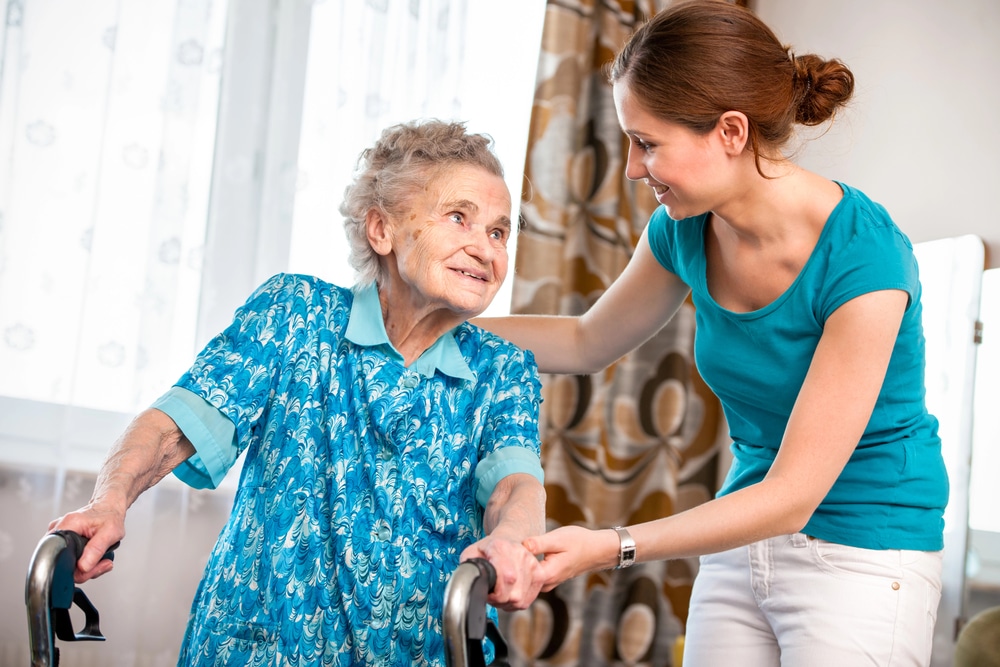Dementia is one of the top concerns for those with aging loved ones. Detecting the early signs of dementia can be crucial for timely intervention and planning for the future. Understanding these signs can help you support your loved ones better and seek appropriate care.

Early Signs of Dementia Checklist
Every journey with dementia is different. However, there are many common signs of Alzheimer’s and dementia. As a caregiver, you may recognize these symptoms over time.
Memory Loss
Memory loss, especially short-term memory, is a common early sign of dementia. While everyone forgets things occasionally, those experiencing early dementia might frequently forget recent events, conversations, or where they placed everyday items.
Difficulty Concentrating and Completing Tasks
Individuals in the early stages of dementia may struggle with concentration and completing familiar tasks. This includes routine activities such as cooking from a recipe, managing finances, or even dressing.
Confusion with Time and Place
Forgetting the day of the week is common, but someone with dementia might frequently lose track of dates, seasons, and even familiar locations. They may also forget how they got somewhere or feel lost in familiar places.
Changes in Mood, Behavior, or Personality
While everyone’s mood changes occasionally, sudden and significant changes in mood, behavior, or personality can be an early sign of dementia. This might include increased irritability, anxiety, or becoming easily upset over minor issues.
Language and Communication Issues
Dementia affects the brain’s language center, making it difficult for individuals to find the right words or follow conversations. This might result in inappropriate responses or difficulty understanding what others are saying.
Poor Judgment and Decision-Making
Impaired judgment is a tell-tale sign of early dementia. This can manifest as poor decision-making, such as not dressing appropriately for the weather or making risky financial decisions.
Lack of Interest and Withdrawal from Social Activities
A person experiencing early signs of dementia might lose interest in hobbies and social activities they once enjoyed. They may withdraw from family gatherings or become less engaged in their favorite pastimes.
Visual and Spatial Perception Issues
Difficulty with depth perception, judging distances, or recognizing visual patterns can be early indicators of dementia. This can affect daily activities such as driving, reading, or navigating spaces.
Recognizing Alzheimer’s and Dementia Signs
It’s important to note that while Alzheimer’s is the most common form of dementia, the signs can vary. Early detection of both Alzheimer’s and other forms of dementia can significantly impact the quality of life for those affected.
Speech Problems (Aphasia)
Alzheimer’s can cause speech problems, known as aphasia, where individuals struggle to come up with the right words or use the wrong words in conversations. This can be an early sign that dementia is affecting the brain’s language centers.
Misplacing Items
Frequent misplacement of items such as keys, wallets, or glasses can be a common early sign of Alzheimer’s and dementia. This symptom also includes the inability to retrace steps to find lost items.
Trouble Sleeping and Sundowning
Many people with Alzheimer’s experience trouble sleeping or increased confusion and agitation during the late evening, a phenomenon known as sundowning.
How to Respond If You Suspect Dementia
Recognizing these early signs is the first step toward seeking medical evaluation and support. Here’s what you can do if you suspect a loved one has dementia.
Have a Conversation
Casually bring up the changes you have noticed with your loved one. Ensure they are in a comfortable environment and avoid making them feel threatened. Suggest attending an appointment with their doctor to discuss the changes and explore possible reasons. Be willing to have the conversation more than once.
Offer Assistance
Offering assistance can help ease the anxiety and fear that often accompany the recognition of dementia symptoms. Help them prepare for their doctor’s visit by writing down symptoms and any questions they may have for the health care professional.
Seek Professional Help
Encourage your loved one to visit a physician for a proper diagnosis. Early diagnosis can lead to interventions that may slow the progression of symptoms and improve their quality of life. Feel free to start attending support groups and meet-ups for people with dementia.
Reducing the Risk of Dementia
While there’s no sure way to prevent dementia, certain lifestyle choices can reduce the risk and support cognitive health.
Stay Physically Active
Regular exercise promotes heart health, improves circulation, and enhances mental well-being, all of which can reduce the risk of cognitive decline.
Maintain a Healthy Diet
Eating a balanced diet rich in fruits, vegetables, and omega-3 fatty acids supports brain health and can lower the risk of dementia.
Stay Socially Engaged
Engaging in social activities, maintaining friendships, and staying connected with loved ones can improve mood and cognitive function.
Challenge Your Brain
Stimulate your brain with puzzles, games, reading, or learning new skills to keep your mind sharp and active.
Manage Chronic Conditions
Regular check-ups and proper management of conditions like high blood pressure, diabetes, and depression can reduce dementia risk factors.
Questions and Answers for People With Dementia
Q: Are early signs of dementia in a woman different from a man?
A: No, the early signs of dementia are generally the same for both women and men. However, some studies suggest women may experience more memory problems, while men may show more behavioral changes.
Q: Are there different types of dementia?
A: Frontotemporal dementia is one of the several types of dementia. Others include Alzheimer’s, vascular dementia, and Lewy body dementia. Mixed dementia is also possible. It can also be a symptom of Parkinson’s.
Q: What is a common symptom of dementia?
A: A common symptom of dementia is memory problems, especially difficulty remembering recent events. However, everyone experiences the stages of dementia at different rates.
Q: Are early symptoms of dementia a normal part of aging?
A: No, early symptoms of dementia are not a normal part of aging. While some cognitive decline can occur with age, significant memory loss and confusion are signs of dementia.
Q: How can people living with dementia be supported?
A: People living with dementia can be supported through medical therapies, a structured environment, social engagement, and activities that promote cognitive function. Memory care communities like Baxter Senior Living provide this lifestyle. We also support caregivers who want to return to their roles as family members.
Do you have more questions about the early signs of dementia or Alzheimer’s?
Understanding and recognizing the early signs of dementia is crucial for timely intervention and support. By staying vigilant and proactive, you can help your loved one navigate the challenges of Alzheimer’s and dementia with resilience and care.
Contact Baxter Senior Living for assistance or more information about dementia care. Reach out to our professionals, who can guide you through this journey.

